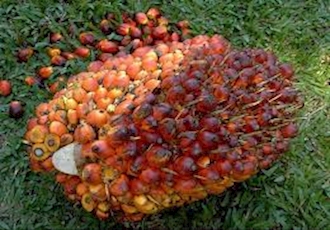Malaysian palm oil price up to 2 - week top on stronger demand
KUALA LUMPUR: Malaysian palm oil futures hit a two-week high on Monday evening, recording a second straight session of gains, as rising demand for palm and gains in rival oilseeds supported the market.
The benchmark palm oil contract for May delivery on the Bursa Malaysia Derivatives Exchange was up 0.7 percent at 2,540 ringgit ($651.12) a tonne at the close of trade. It earlier rose to 2,555 ringgit, matching palm's highest levels reached on Feb. 12.
Trading volumes stood at 44,696 lots of 25 tonnes each at the end of the trading day.
"The market rose on higher export figures," said a futures trader in Singapore. "We're hearing that there is demand from India this month and next month."
Another trader in Kuala Lumpur added that palm oil was up tracking gains in competing oils, such as soyoil on China's Dalian Commodity Exchange and the U.S. Chicago Board of Trade.
"Appreciation in the local currency may, however, slow down upside momentum," he added, referring to a stronger ringgit on Monday morning.
Gains in the ringgit, palm oil's currency of trade, typically makes the tropical oil more expensive for foreign buyers, limiting demand.
The ringgit rose 0.2 percent against the dollar on Monday afternoon at 3.9090.
Malaysian palm oil shipments have also been rising in February compared to the previous month. Exports were up 5 percent in the Feb. 1-25 period versus the corresponding period in January, according to data from cargo surveyor Intertek Testing Services on Monday.
Another cargo surveyor, Societe Generale de Surveillance, reported a 4.3 percent gain for the same time period.
In other related oils, the Chicago Board of Trade's March soybean oil contract rose 0.3 percent, while the May soybean oil on China's Dalian Commodity Exchange rose 1.3 percent.
The Dalian May palm oil contract was up 1.5 percent.
Palm oil prices are impacted by rival edible oils as they compete for a share in the global vegetable oils market.
Source: Reuters







